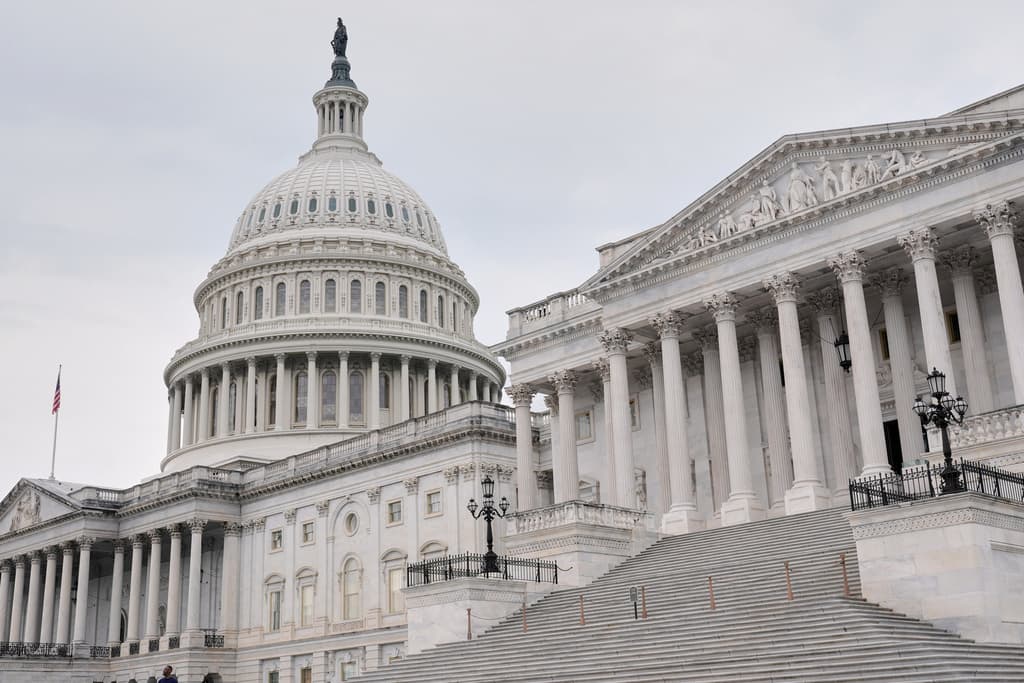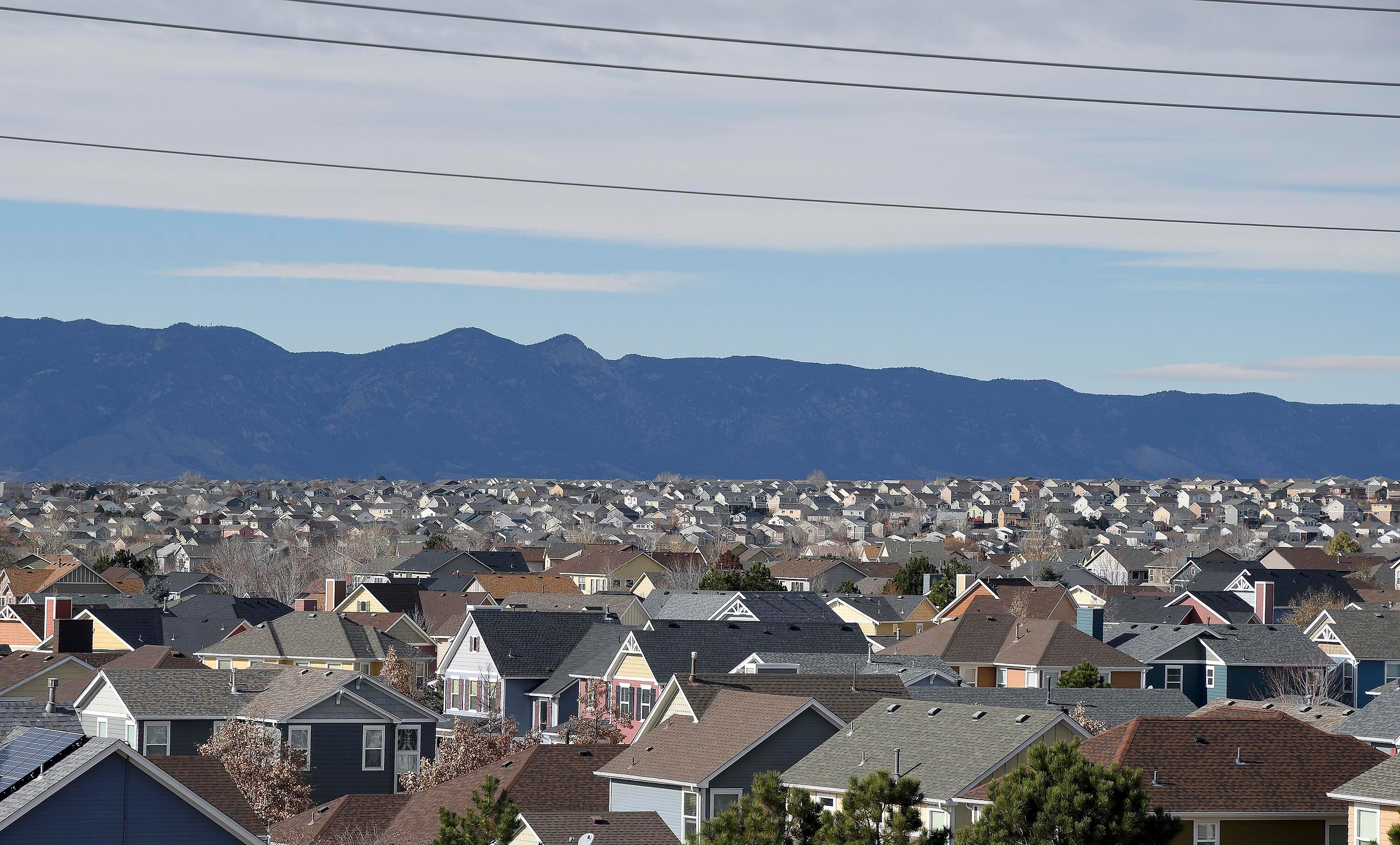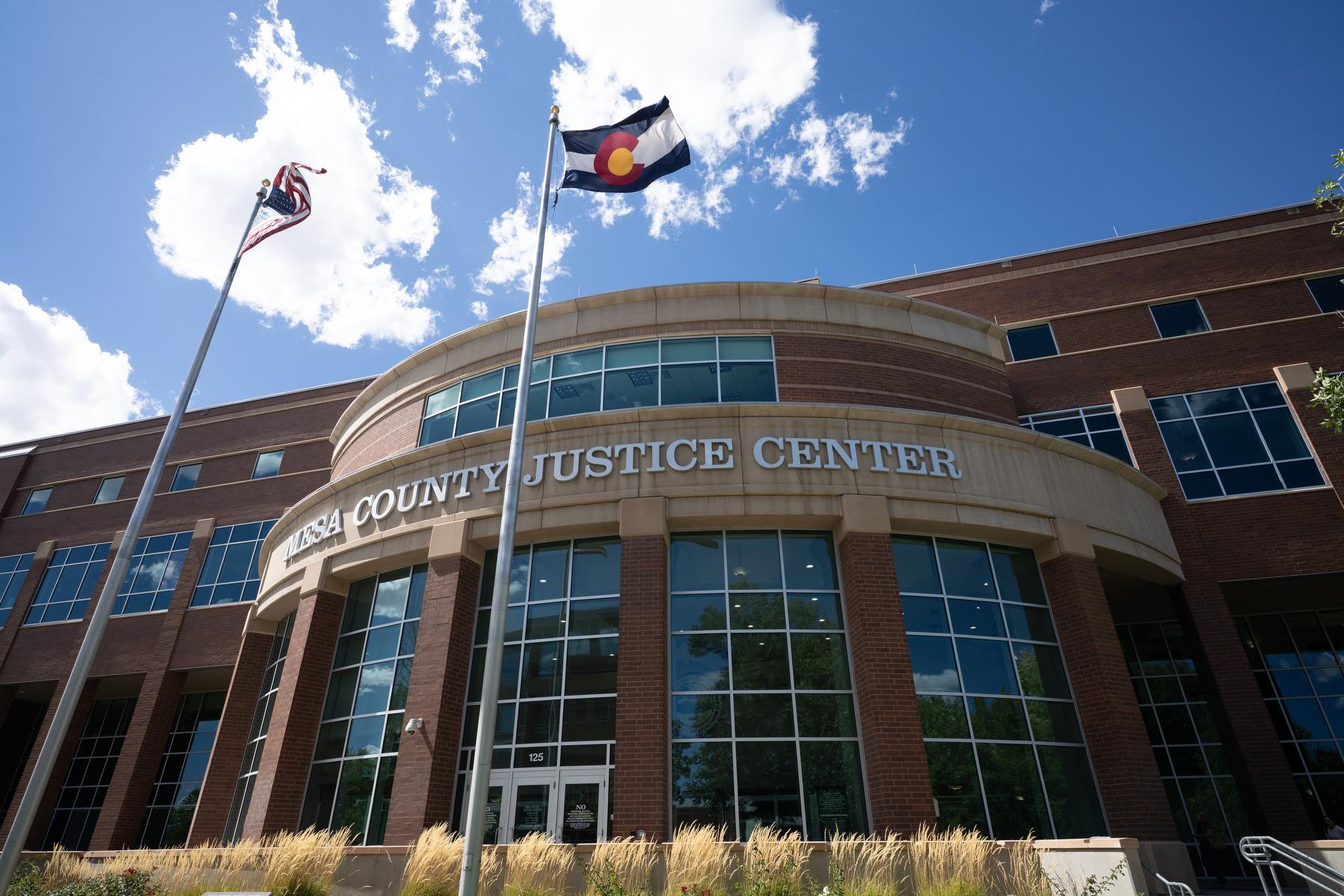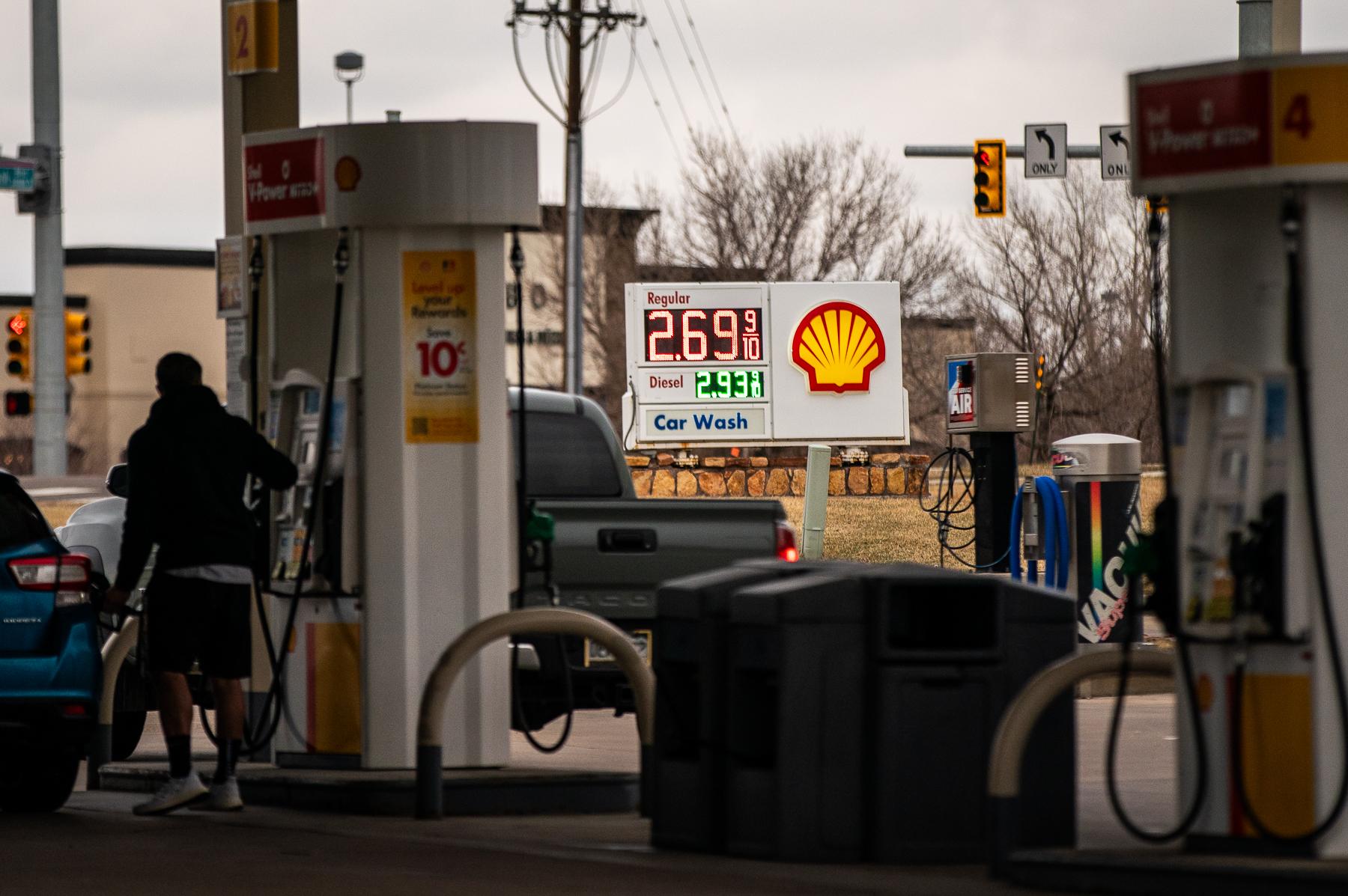
Gov. Jared Polis may do most of his governing from the heart of the Front Range, but issues on the Western Slope are still priorities.
The region is in the spotlight as the Bureau of Land Management considers relocating its headquarters to Grand Junction, and more businesses flee the pricey Front Range for more affordable digs on the Western Slope.
Polis had recently questioned whether the region could land the BLM headquarters, largely due to its small airport. But he said he remains supportive of Grand Junction's efforts to win the jobs, as opposed to the Front Range.
“I think our challenge is how can we put together a compelling package for and with Grand Junction, with the strong support of the business community -- what it would mean to have daily flights to Washington D.C. or to California and to New York,” he said. “So we certainly want to work with regional authorities in western Colorado to help make it as attractive as possible for the BLM, just to make the case that it makes sense for the BLM to locate in Grand Junction.”
He added that Grand Junction’s adjacency to many of the 8 million acres of BLM-managed lands in Colorado is a plus.
Polis said he's excited for the region’s future.
“I think western Colorado will continue to thrive in the 21st-century economy. It's really positioned for success with location (and) independent employment," he said. That independent employment can mean everything from employees working remotely in everything from highly skilled jobs to call center work.
The governor wants to see more of that kind of employment moving to the Western Slope, rather than a return to the region's historic roots in oil and gas. He has remained neutral and cautious on the proposed Jordan Cove pipeline project, which could open foreign markets to natural gas from the region.
“If it gets built, it gets built. But we're not going to hang our hat and bet on something that won't even create a single job in Colorado for eight years, and will only create those jobs if the price is right,” Polis said. “I'm not a gambling man when it comes to the economic growth.”
The Western Slope skews more politically conservative than the Front Range, and many residents took issue with laws passed and decisions made by the Democratic- controlled legislature this year. Among those decisions was adding Colorado to the National Vote Compact. Polis maintains the move is a positive one.
“Well, it depends whether you believe that it should be up to the individual or up to this strange group of electors that was set up hundreds of years ago, which aren't even bound to vote for the person that their state votes for. It's a very kind of risk factor in our democracy,” he said.
Full Transcript
Ryan Warner: This is Colorado Matters from CPR News. I'm Ryan Warner in Grand Junction, and here on the western slope, people are crossing their fingers hoping to lure a big new employer, the Bureau of Land Management. The BLM oversees more than 8 million acres of federal land in Colorado and its headquarters may move from D.C. but to where exactly? It's just one of the western Colorado issues we asked Gov. Jared Polis about this week. He says he spoken with the Interior Secretary about why Grand Junction is the right choice for the BLM. Jared Polis: Not only is it closer to the lands we manage, but I think in many ways it would be transformative to the community giving Mesa County and Grand Junction critical mass, more flights in and out of the airport. And so while, of course, we support all of Colorado, it would mean a lot more to our state if the BLM chose Grand Junction, which is what we're pushing for. RW: Now you stirred up a little bit of dust over this a couple of weeks ago when you said Denver is more likely because Grand Junction has fewer flights in and out of that airport. Grand Junction voters recently raised their lodging tax to provide money for incentives to the airlines. Do you think the state would chip in and help with that? JP: I think our challenge is how can we put together a compelling package for and with Grand Junction, with the strong support of the business community. What it would mean to have daily flights to Washington D.C. or to California and to New York. So we certainly want to work with regional authorities in western Colorado to help make it as attractive as possible for the BLM just to make the case that it makes sense for the BLM to locate in Grand Junction. RW: I want to challenge this assumption that the BLM being closer to the lands it manages is necessarily a better steward of those lands. Doesn't that have everything to do with who's in power at the White House? JP: The vast majority of folks that work for any federal agency like BLM are classified. They stay there, they work there for their career, one administration to the next, they follow the laws of Congress. Of course, there are political appointees to the top and that matters, but the men and women who work at the BLM every day are the same people that worked there under George Bush, under Bill Clinton, under Barack Obama. They've been there long enough. Some of them probably even worked under Reagan and Carter. RW: Blue Sky with me here, governor, in Colorado, 30 years from now, what would you want the western slope to be like? JP: I think western Colorado will continue to thrive in the 21st-century economy. It's really positioned for success with location, independent employment with many manufacturing companies moving less. RW: What does that mean location independent? JP: It means that people can increasingly choose to live where they want whether that means telecommuting or working in a small office, and a lot of those jobs, and it's across the skill spectrum. It's not just high skills jobs. It's not just architects or business people. It's also a call center worker, as an example, as long as you have high-speed internet connectivity and, of course, one of our top priorities is expanding high-speed Internet access across western Colorado. But you can choose to live where you want and where you want to recreate and or have a family and western Colorado has a lot of those opportunities right in your backyard, and increasingly we're seeing individuals, small companies and others really recognize that and we have a strong and growing outdoor tourism and recreation industry and the quality of life will only continue to improve. RW: Now, the economy of western Colorado has historically relied a lot on oil and gas. Prices and production had been down for several years, but some people see hope for recovery with a project called Jordan Cove. It would involve a network of pipelines across the West to move natural gas to a port in Oregon for transport to international markets like China. You've been neutral on Jordan Cove. Well, what does that mean? JP: When it comes to oil and gas jobs when the prices are high, as you indicated, it's a boom to the economy. There're lots of folks at work at good paying jobs. When there's a bust in the prices, many of those jobs go away. We've been through this a number of times. So what you need is a sustainable economic base. Now, that doesn't mean that you don't position yourself when prices are good. You certainly want to take advantage of that for your local economy, but it's not the type of industry that can be counted on day in and day out for providing jobs and being the backbone of a community. RW: So it sounds like you don't want to build something of a permanent project for an industry that you see as cyclical. Do I have that right? JP: Well, again, on any of these projects we're neutral. I mean, if it gets built, it gets built. But we're not going to hang our hat and bet on something that won't even create a single job in Colorado for eight years, and will only create those jobs if the price is right. So, I mean, I'm not a gambling man when it comes to the economic growth. You want to benefit from that sort of thing if it occurs, but you can't base your entire economic development strategy on something that might or might not happen. RW: You know, much of the Western Slope is as politically red as your hometown of Boulder is blue. Mesa County, for instance, voted 65 percent for Trump, 35 percent for you in a different election. You've championed health care reform and said that will be especially helpful on the Western Slope where costs are exceptionally high. Beyond that though, how do you build trust or support for your agenda when there is such a big philosophical gap Gov. Polis? JP: Well, I spent a lot of time in western Colorado. I visited Orchard Avenue Elementary in Grand Junction highlighting the benefits of free full-day kindergarten across our state and the voters of Mesa County agree. They passed overwhelmingly a Mill Levy and a bond two years ago. I really value the schools. In terms of the savings on healthcare in the individual market, next year, we're expecting price savings to families in western Colorado of 15, 20, 25 depending on where they live. There're different pricing zones and those savings are real for people, so it's really about bringing Republicans and Democrats together around practical solutions that save you money so you have a little bit more left at the end of every month. RW: Bringing Democrats and Republicans together. That sounds easy. JP: Well, we did it around kindergarten, we did around health care. So when you look at re-insurance on healthcare, hospital pricing transparency, all of these bills that we passed that will really drive down rates, bipartisan, strong support from Western Slope Republicans, Janice Rich, Bob Rankin and others. And when you look at free full-day kindergarten, it passed the State House, I think 53 to 11 in its final form there, including strong support from voices from western Colorado. So there's a lot more that unites us as a state. There's a lot more that unites us as a people than what divides us. And I think it's always important to focus on, we all care about our kids and we all, when you're writing a check to your insurer or your healthcare provider, you all want that to be for less. RW: Here's something that's proven a bit more divisive though, Colorado has joined a group of states trying to change the electoral college. Colorado has had a winner take all system, so the candidate who wins the presidential election in Colorado gets this state's nine electoral votes and under this new plan, Colorado and other states would cast those votes for the winner of the national popular vote. This still has a ways to go. More states have to agree to the change to make it worth much. But there is a movement as you know, to repeal this new law and that movement began in western Colorado. We're going to hear from one of the organizers tomorrow. They argue the electoral college protects smaller states like Colorado. What do you say to those critics? JP: Well, I think the biggest fallacy with that is simply mathematics. Colorado is no longer a smaller state, so we have nine electoral votes that will probably go up to 10 next year. RW: These are conventional districts added, right? JP: The current electoral college district is at it. Yes, exactly. The current electoral college system gives every Wyomingite about twice the say over who's president than every Coloradoite, so while, of course, it discriminates Morgan's votes in Texas, in California, in New York, it absolutely hurts the impact of Coloradans on the outcome of presidential elections if we don't simply have one person, one vote. RW: But let's imagine this scenario where the candidate who wins Colorado does not win the national popular vote. Wouldn't you be frustrated if Colorado didn't honor the votes of its own people and threw its support behind someone who actually lost in this state? JP: Well, what'll actually have to happen for this to pass, and by the way, so as you know, we still have our electoral votes. It's exactly the same. There's still an electoral college. RW: This is part of a compact. JP: Right, for it to be abolished. What I think it will take is it'll take a Republican candidate who wins the popular vote, but then a Democratic candidate who wins the electoral college. And then many Republicans will be outraged that even though they won the national election, their candidate didn't become president. And they will join and say, "Look, we just sort of have whoever gets the most votes should be President of the United States." RW: But don't you think it's a strange circumstance that if a state votes for a particular candidate, it would not then send those votes to that candidate? JP: Well, it depends whether you believe that it should be up to the individual or up to this strange group of electors that was set up hundreds of years ago, which aren't even bound to vote for the person that their state votes for. It's a very kind of risk factor in our democracy. Look, rather than focus on electors, hey, let's give every man woman in this country a vote to say that one person is one vote and your vote counts the same if you live in Wyoming, if you live in Colorado or if you live in Texas and for Coloradans that mean your vote would count a little bit more. RW: Now, I'll say there wasn't a single Republican vote for this and the legislature. JP: Well, as I said, it'll probably take the shoe on the other foot and then Republicans would support this. Right now they have this memory of Hillary Clinton getting more votes than Donald Trump, but Donald Trump having electrical college, so it would take the opposite scenario. Let's say that Donald Trump gets more votes, but the Democrat wins the electoral college and becomes president and then it's very likely the country would abolish the electoral college. RW: This is interesting. Colorado, of course, moved up it's presidential primary to Super Tuesday. Presumably with the idea that we'll see more of the candidates sooner. That we're a player, right? But with the national popular vote measure, what incentive do candidates have to visit? Maybe Colorado is less small than it used to be, but we pale in comparison to a New York or a California, Florida, a Texas. What incentive would a candidate have to come here if the popular vote places so much emphasis on population? Aren't we going to see the bottoms of their planes as they're headed to much more populous places? JP: Well, no. It has the effect of bringing candidates here if you're talking about the electoral college, because especially if the state is seen as leading democratic, which it is. If you look at any of the maps that the various political prognosticators do, if we want to actually have a real campaign for president here, we need to make sure that every vote counts because once the state is firmly in the red column or the blue column, you're not going to get attention from presidential candidates under the electoral college system. But we want Colorado to be a real place where candidates are speaking to Colorado issues. RW: June is Pride Month, Denver's LGBTQ community celebrated last weekend and this weekend is Colorado West Pride Fest, with a parade Sunday on Main Street in Grand Junction. You are Colorado's first openly gay governor and I wonder what advice you have for LGBTQ people who are in the closet or afraid to reveal who they are to friends and family. JP: Well, we have a strong independent spirit here in western Colorado. If you live your own life and as long as you don't steal from your neighbor or bother them you're able to go your own way. And we value that diversity, however, you want to live your life and whatever faith you are, whoever you love, whatever gender you are, whatever your ethnic background, and that diversity is a big part of our strength because we have different ways of thinking. People from different walks of life, all working together to grow our economy, contributing to our culture to make our state even better. RW: And to someone who's afraid to tell the truth about themselves, what would you say? JP: Well, you don't have to tell anybody anything about yourself you don't want to. I mean, if you want to, you can talk about your religion or who you're dating, but nobody should ever feel that they are obliged to talk about their faith or their partner. But people should feel comfortable doing so when they want to. So, I mean, it's all part of finding a group of friends and family that support you and your decisions and whether it's a church-based group or whether it's a group of friends that hang out once a week at a bar or the local veterans club. RW: Thank you, governor. JP: Thank you. |









